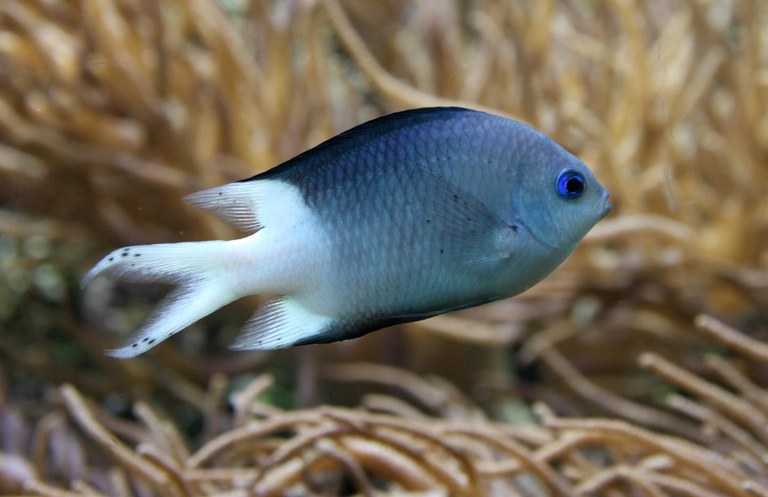Fish have circadian rhythms (AKA 24 hour biological cycles) just like most living organisms. Fish have evolved their circadian rhythm to regulate metabolism differently to account for the shifting CO2 levels between night and day; as most reefkeepers know, seawater is more acidic at night because photosynthesis (which consumes CO2 and generates O2) stops after dark.
A new research published in Nature has uncovered a previously unknown mechanism that some reef fish may employ in order to adapt to increasing ocean acidification. When scientists exposed the Indo-Pacific reef chromis, Acanthochromis polyacanthus, to high CO2 levels, something unexpected happened to their offspring: The genes responsible for circadian rhythm changed to perpetual “night mode” to cope with the higher CO2 levels!
The research shows reef fish may prove resilient to the changing climate in ways we still don’t understand. While these findings provide a glimmer of hope, scientists caution that organisms have physiological limits when it comes to adapting to extremely rapid environmental changes.











0 Comments